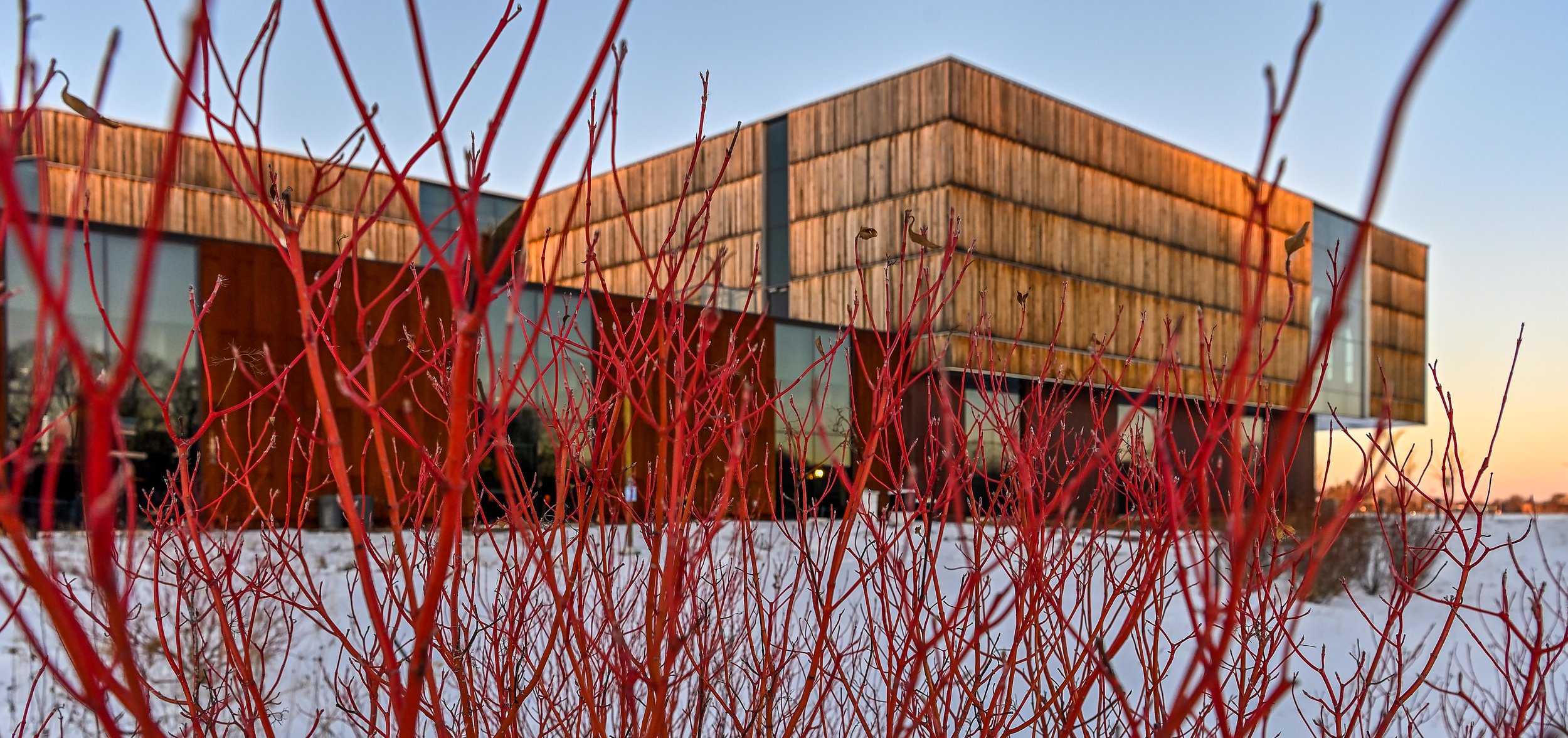Minnesota Climate Adaptation Awards
Presented by the University of Minnesota Climate Adaptation Partnership in partnership with the College of Food, Agricultural and Natural Resource Sciences and the University of Minnesota Extension
Moderated by Sven Sundgaard
Sat, Jan 28, 6:30 pm
Bell Museum
Part of the Climate Solutions Series
Join the University of Minnesota Climate Adaptation Partnership and College of Food, Agricultural and Natural Resource Sciences (CFANS) for the 2023 Minnesota Climate Adaptation Awards, a special evening honoring climate leaders from across Minnesota who are working to ensure our state is making needed progress responding to and preparing for a changing climate. Featured speakers include Jothsna Harris, Dr. Mark Seeley, and Dr. Heidi Roop. Moderated by Sven Sundgaard.
The Minnesota Climate Adaptation Awards, presented annually since 2014, celebrate exceptional achievements in leadership, education, research, policies, and practices that improve resilience or climate justice through the development, advancement, or implementation of climate adaptation strategies. We know that celebrating success and showcasing the actions and leadership of our peers can help to accelerate adaptation across Minnesota, and beyond. Past recipients have developed cutting-edge adaptation plans for their communities, supported project-specific implementation of adaptation investments, and served as leaders championing adaptation across their organizations.
The awards events will include access to the Bell Museum, the awards presentation with light refreshments and a cash bar, as well as access to the special exhibit Snow: Tiny Crystals, Global Impact, a hands-on science exhibition about the nature and wonder of snow and the impact of climate change on our snowy planet. The exhibition follows snow’s journey from tiny crystals to vast winter landscapes to abundant spring snowmelt. Visitors can explore how snow shapes and sustains life on Earth, snow’s vital roles in sustaining our water supply and cooling our planet, and the cultural and personal value of snow. Snow was developed and produced by OMSI (the Oregon Museum of Science and Industry) as part of a collaborative project led by the University of Alaska Fairbanks and funded by the National Science Foundation.
About the panelists
Jothsna Harris has a decade of experience building capacity for the climate justice movement, designing award-winning climate change programs rooted in community, centering personal stories, and other values-based ways that help catalyze climate action. She is the founder of Change Narrative LLC, which specializes in creative climate productions that utilize storytelling to repair harm and shift historical and damaging narratives in mainstream climate communications. Jothsna co-edited the anthology book, Eyewitness: Minnesota Voices on Climate Change, and her work with Change Narrative recently received a first-time producer Golden Lanyard award for the 2022 MN Fringe Festival stage production "Changing the Narrative: Climate Stories for Justice" utilizing art, music, and poetry as an entry point into the climate conversations.
Dr. Heidi Roop is the Director of the University of Minnesota Climate Adaptation Partnership and an Assistant Professor of Climate Science and Extension Specialist at the University of Minnesota. Her research and Extension programs combine cutting-edge climate science and effective science communication to increase the use and integration of climate change information in decision-making at a range of scales—from city and state to national and international levels. Her climate science research takes her around the world from Antarctica to California to the shores of Lake Superior. Her recent science communication efforts were focused on her forthcoming book, The Climate Action Handbook, which outlines in a highly visual format everyday ways we can contribute to collective and individual climate solutions. In addition to her appointments at the University of Minnesota, she also is an Affiliate Assistant Professor in the School of Public Health at the University of Washington and serves as expert advisor to a range of organizations and agencies as they seek to build resilience to climate change.
Dr. Mark Seeley – In his role as Extension Climatologist and Meteorologist, Dr. Seeley managed the Weather and Climate Education Program, as well as doing research and teaching. He has served as a weekly commentator on Minnesota Public Radio’s “Morning Edition” news program and written the weekly newsletter (blog) “Minnesota WeatherTalk” since 1992. Dr. Seeley has helped Twin Cities Public Television (TPT) produce award-winning documentaries on Minnesota’s most memorable historical weather events, and on how climate change is affecting the state’s infrastructure and natural resources. He is author of Minnesota Weather Almanac (1st edition published by the Minnesota Historical Society Press in 2006 and second edition published in 2015), and co-author (with Don Breneman) of Voyageur Skies: Weather and the Wilderness in Minnesota’s National Park (Afton Press, 2011), an award-winning book about the state’s only national park.
Dr. Seeley has been honored with a variety of awards, some of which include: Minnesota Crop Production Retailers Association Outstanding Service Award, December 2017; Minnesota Agri-Growth Council Distinguished Service Award, November 2017; The Siehl Prize in Agriculture for lifetime contributions of knowledge to the agricultural sciences, May 2014; The University President’s Award for Outstanding Community Service, May, 2012; The Scientific Communication and Education Award from Sigma Xi (2001, 2008, 2017); the University of Minnesota Extension Dean and Director’s Award, 2006; the MN/DOT Research Center Partnership Award (for design and use of snow fences), 2003.
Related event:




